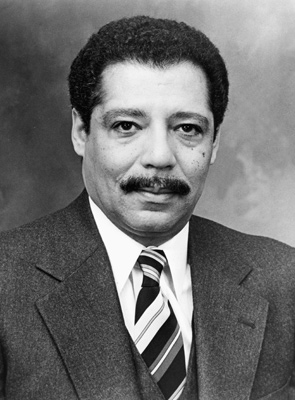Julian Dixon facts for kids
Quick facts for kids
Julian Dixon
|
|
|---|---|
 |
|
| Chair of the House Ethics Committee | |
| In office January 3, 1985 – January 3, 1991 |
|
| Preceded by | Louis Stokes |
| Succeeded by | Louis Stokes |
| Member of the U.S. House of Representatives from California |
|
| In office January 3, 1979 – December 8, 2000 |
|
| Preceded by | Yvonne Brathwaite Burke |
| Succeeded by | Diane Watson |
| Constituency | 28th district (1979–1993) 32nd district (1993–2000) |
| Member of the California State Assembly | |
| In office January 8, 1973 – November 30, 1978 |
|
| Preceded by | Yvonne Brathwaite Burke |
| Succeeded by | Gwen Moore |
| Constituency | 63rd district (1973–1974) 49th district (1974–1978) |
| Personal details | |
| Born |
Julian Carey Dixon
August 8, 1934 Washington, D.C., U.S. |
| Died | December 8, 2000 (aged 66) Marina del Rey, California, U.S. |
| Resting place | Inglewood Park Cemetery |
| Political party | Democratic |
| Spouse | Bettye Lee |
| Children | 1 |
| Education | California State University, Los Angeles (BS) Southwestern University (LLB) |
| Military service | |
| Allegiance | |
| Branch/service | |
| Years of service | 1957–1960 |
| Rank | Sergeant |
Julian Carey Dixon (August 8, 1934 – December 8, 2000) was an important American politician. He was a member of the Democratic Party from California. Dixon served in the California State Assembly from 1973 to 1978. After that, he became a member of the United States House of Representatives in 1979. He continued to serve there until his death. He also led the House Ethics Committee from 1985 to 1991.
Contents
Who Was Julian Dixon?
Julian Dixon was born in Washington D.C. He served in the United States Army for three years, from 1957 to 1960. After his military service, he went to college. He graduated from California State University, Los Angeles in 1962. Later, he earned a law degree from Southwestern University.
Starting His Political Journey
Dixon began his political career in California. In 1972, he was elected to the California State Assembly. This is a part of California's state government. He served three terms there, helping to make laws for the state.
Making a Difference in Government
In 1978, Julian Dixon was elected to the United States House of Representatives. This meant he would represent California in the national government in Washington, D.C. He worked on many important issues during his time in Congress.
Leading the Ethics Committee
From 1985 to 1991, Dixon was the chairman of the United States House Committee on Ethics. This committee is very important. It makes sure that members of Congress act fairly and honestly. He also led the rules committee at the 1984 Democratic National Convention.
Important Decisions and Legacy
In 1983, Dixon and seven other representatives disagreed with a presidential decision. They sponsored a resolution about the invasion of Grenada. Julian Dixon was re-elected to Congress for his final term. Sadly, he passed away on December 8, 2000, at the age of 66, after a heart attack.
Honoring His Legacy
Julian Dixon's work and dedication are remembered in several ways. A busy subway station in downtown Los Angeles is named after him. It is called the 7th Street / Metro Center / Julian Dixon station. A plaque there honors his role in getting money for the Metro Rail system.
Buildings and Awards
His law school, Southwestern University School of Law, opened the Julian C. Dixon Courtroom and Advocacy Center in 2004. This center helps students learn about law and justice. The Culver City branch of the Los Angeles County Library is also named in his honor. You can find it at Culver City Julian Dixon Library.
A special book called Black Americans in Congress 1870-2007 was dedicated to Julian Dixon. This shows how much his colleagues respected his contributions. He was also a member of the Alpha Phi Alpha fraternity. Julian Dixon was laid to rest at Inglewood Park Cemetery in Inglewood, California.
See also
- Hal Bernson, Los Angeles City Council member, 1979–2003, received first Julian C. Dixon Award for public service
- List of African-American United States representatives
- List of United States Congress members who died in office
 | Kyle Baker |
 | Joseph Yoakum |
 | Laura Wheeler Waring |
 | Henry Ossawa Tanner |

